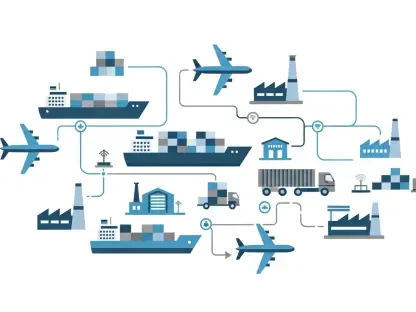Nigerian Postal Service (NIPOST) is undergoing significant reforms aimed at improving service delivery, enhancing customer satisfaction, and solidifying its role as an essential part of Nigeria’s economic infrastructure. Under the leadership of Postmaster-General Tola Odeyemi, the Federal Government is committed to transforming NIPOST into an affordable, efficient last-mile delivery hub that will better serve the needs of the population.
Transformative Partnerships
A cornerstone of these reforms is the formation of strategic partnerships designed to drive efficiency and reduce costs. A noteworthy development is the recently signed Memorandum of Understanding (MoU) with the Small and Medium Enterprises Development Agency of Nigeria (SMEDAN). This partnership aims to reduce the cost of moving goods and services by 15% for the 22 million businesses registered with SMEDAN. By fostering such collaborations, NIPOST is positioning itself for growth and enhanced operational efficiency.
Upgrading Logistics and Courier Services
Efforts are also underway to upgrade NIPOST’s logistics and courier processes to meet world-class standards. Given its extensive network across the 774 local government areas in Nigeria, the organization is well-placed to ensure the seamless movement and delivery of goods. Enhancing these logistics and courier services is pivotal for fostering economic trade and development, and NIPOST is actively working to align its operations with these objectives.
Digitization and Customer Satisfaction
Digitization is another critical aspect of the ongoing reforms. Ms. Odeyemi has highlighted that customer satisfaction and exceeding expectations are top priorities for NIPOST. By fully digitizing postal operations, the organization aims to eradicate mail loss, thereby reinforcing the reliability and efficiency of its services. This move towards a more digital operation is expected to drastically improve service quality and customer experience.
‘Renewed Hope Agenda’ and National Goals
The Federal Government’s ‘Renewed Hope Agenda’ serves as a driving force behind these comprehensive reforms. By aligning NIPOST’s services with national goals, the government aims to make postal services a valuable component of broader governmental activities, thus adding significant public value. This alignment underscores the importance placed on NIPOST’s role in national development.
Conclusion
The Nigerian Postal Service (NIPOST) is undergoing important reforms to boost service delivery, enhance customer satisfaction, and reinforce its place in Nigeria’s economy. Led by Postmaster-General Tola Odeyemi, these changes reflect the Federal Government’s dedication to transforming NIPOST into an accessible, efficient last-mile delivery network. Tola Odeyemi emphasizes the need to keep up with global postal trends and integrate technology to modernize operations. The focus on digital services, parcel delivery, and financial services aims to meet the evolving demands of the population. NIPOST’s new strategy includes partnerships with local and international logistics companies to expand its reach and improve reliability. Strengthening infrastructure, improving employee training, and investing in customer service are key to this transformation. As part of the wider economic plan, these reforms aim to foster growth, provide jobs, and ensure that NIPOST remains a vital part of Nigeria’s social and economic framework. The goal is to make NIPOST an essential, modern postal service that can compete globally while catering to local needs effectively.









